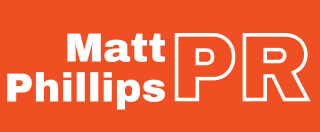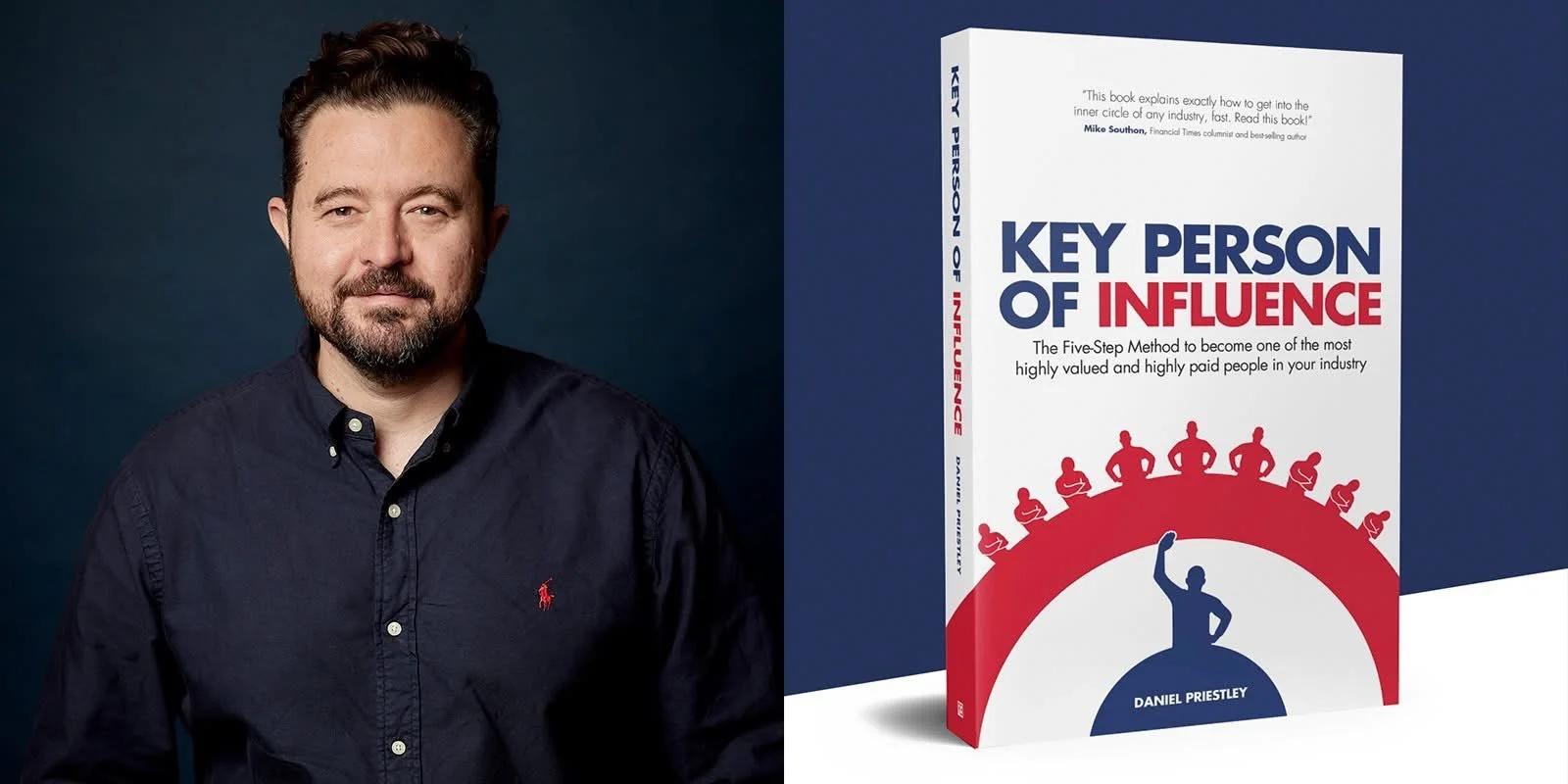Personal branding in PR, and why it’s more important than ever.
Essential reading for anyone looking to build a network… and survive past your next
Building a strong personal brand is, I think, vital in a modern working world where job security is a thing of the past. Daniel Priestly’s book Key Person of Influence is a great starting point.
If you’re not sure about this, I would recommend reading Daniel Priestly's book, Key Person of Influence (KPI).
Apart from helping me develop a pitch and value proposition for my own consulting practice, it’s also helped me in the advice I give to clients and help me to zero in on what I really want to do after (it’s fair to say) losing sight of this in recent years.
For context, I enjoyed a public profile of sorts as a music industry spokesperson in the 2000s, doing hundreds of interviews both behind the scenes and sometimes on camera (such as this one for Channel 4 News).
Whilst I maintained a profile of sorts (off camera) at the BBC in the early 2010s, I've not worked much on my personal brand much over the last fifteen years.
I did some stuff to promote my own business, and have posted fairly regularly on LinkedIn, but personal profile-raising has not been a focus. And in truth I’ve not really liked doing it.
Also, I've have worked across a wide range of sectors outside the creative industry/ media such as finance and marketing services since - all as an advisor, rather than as a spokesperson, and working for smaller firms.
While it makes me feel a little awkward to brazenly admit that I miss the attention, and that I now want to acquire more influence, I need to get over myself. I can blame this a little on cobblers' shoes, but either way I should start to practice what I preach.
Because without influence, you can't attract attention. Without attention, you can't communicate your ideas to people. And without people, you have no power. You're a passenger. And I want to get things done.
Of course I know all this, as I preach it to my clients.
Every business leader, or expert spokesperson in a business, will be more effective if they work towards becoming a KPI in their own sector.
And this is important in PR, as journalists are drawn to big brands. This means anyone representing a powerful company or industry (as I did back in the day) or someone who has earned a brand profile of their own.
Daniel's book outlines five key stages to building a personal brand. `
1) Pitch (define and describe your unique value)
2) Publish (create content, to build a tribe and credibility)
3) Product (scale value through products and services)
4) Profile (become known, liked and trusted in your niche)
5) Partnership (key connections that support everyone involved)
First, it's useful to assess where you're at.
Having a measure of your current brand profile gives any business leader or expert spokesperson a barometer of both:
a) where they are (which helps in terms of PR expectation management) and
b) what they will need to do to acquire the credibility and brand profile that any PR professional will need to earn them media coverage.
My starting point was Daniel's personal brand test. And I came out with a pretty low score.
My working theory for this is that I've become a Swiss-Army knife PR.
After almost 25 years spent working on a really broad range of things, I've become a generalist rather than a specialist, taking what opportunities come to me, rather than focusing on who I really want to work with, and what type of PR I really want to do.
That's the start of the pitch; being clear about who you are for, why you are for them, and what value you can create.
Developing my pitch: Full Funnel PR for Constructive Disruptors
First I want to focus on who matters.
And defining who you want to work for isn't easy. It's not necessarily about demographics, or market sectors, for me, but mindset and intent. These are people I call 'constructive disruptors'.
Typically these are business leaders trying to change something because they have a personal calling to do so. They have a constructive, progressive, social purpose behind them. What they need is help from a communications professional to achieve it.
But they may not be business leaders. This may be a sector expert in a larger firm, a political figure, charity or single-issue campaigner. They just need vision, and heart.
Right through my career I have always been happiest working with people like this, helping them to construct a compelling argument, and helping them take it to the people that matter.
My second thought is to develop a service offering around the idea of 'full funnel PR'.
PR is often (mistakenly) seen as a bit fluffy, unmeasurable, independent to sales and marketing, and is often not as well leveraged or activated as it could be to achieve sales growth objectives.
And beyond sales, PR can deliver wider business objectives - funding, hiring, partnering and more. Like any business process, each can be seen as a funnel and I think PR can be more effectively used at each stage.
PR messaging too, will differ according the funnel.
For example, journalists are probably not going to be interested in how well a specific company product/ solution meets a customer's needs. They are far more likely to be interested further up the funnel; whether that's points of difference a business has vs. its competitors, or (better) higher up at the 'industry problem/ issue' level, or (better still) at the top of the funnel where an industry issue is spilling over to the wider business community or the 'man on the street'.
Smaller businesses need to be bold, and talk about issues of real impact, to have any chance of cutting through.
If the PR industry can get better at measuring the impact of PR right across the enterprise, it will be valued more highly.
A few weeks ago I was struck by an interview with Matthew Freud, where he stated that a business with a good PR reputation would be worth 50% more than a rival business with identical financial metrics (ie cash flow, P&L, balance sheet).
Whilst this may be nigh on impossible to empirically prove beyond all doubt, I think most business leaders would say it's 'about right' in their bones and I'm encouraged to hear that PR trade body the PRCA may be considering further research in this area.
Since my primary area of professional interest is business growth - I want to do more to make a better case for PR as an agent for progressive change in more areas of business.
So there is it is, my nascent pitch of "full funnel PR for constructive disruptors."
If you have a take on this idea, or know someone who might fit the constructive disruptor description above, I'd love to hear from you - drop me an email at matt@mattphillipspr.com, or book a call here.

